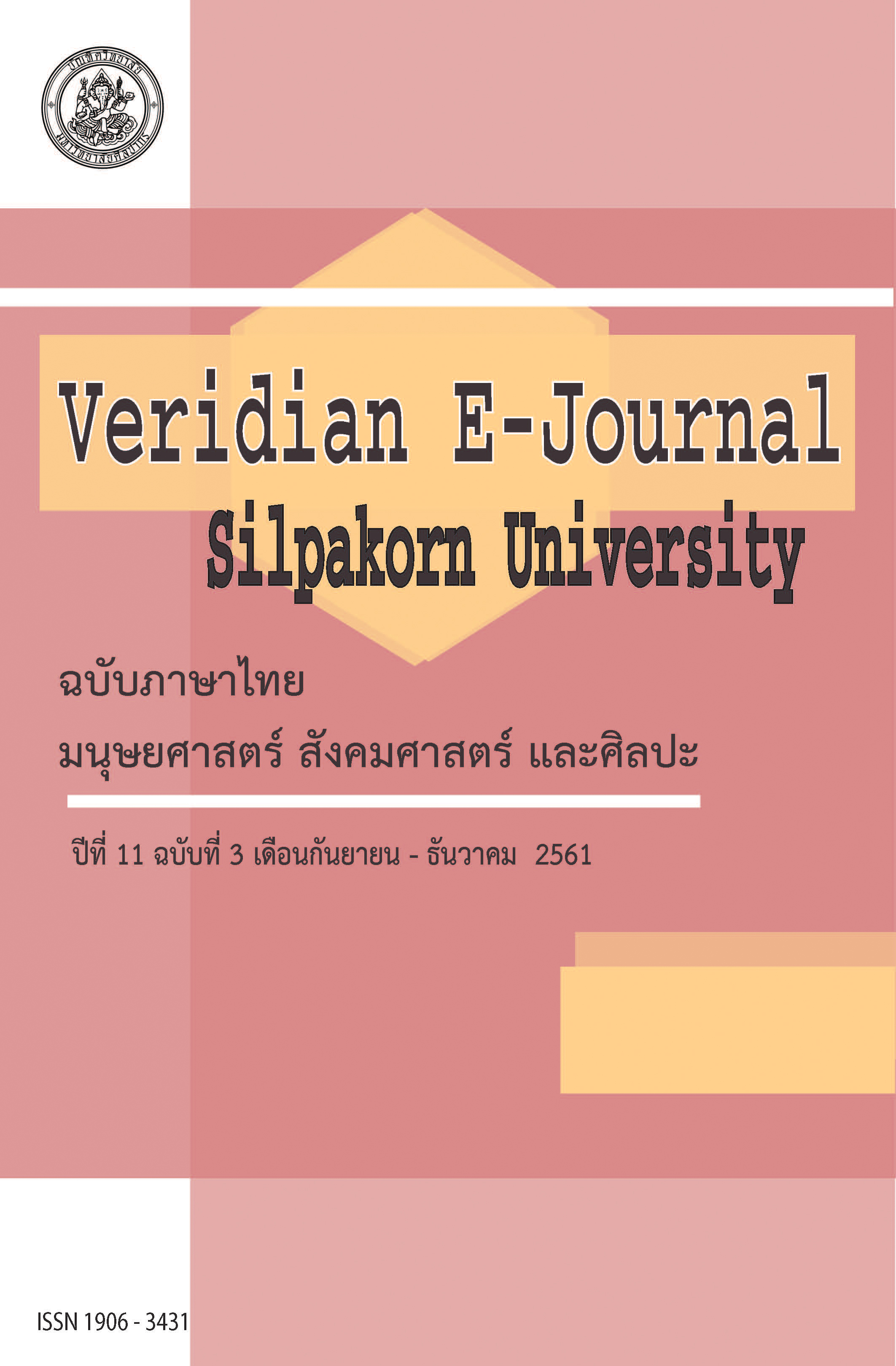ผลการใช้สื่อวีดิโอและการใช้กลยุทธ์อภิปัญญาต่อทักษะการฟังเพื่อความเข้าใจภาษาอังกฤษ ของนักเรียนชั้นประถมศึกษาปีที่ 6 โรงเรียนนาคประสิทธิ์ จังหวัดนครปฐม (Effects Of Using Videos And Metacognitive Strategy Instruction On Listening Comprehension Of Sixth-Grade Students At Nakprasith School, Nakhon Pathom)
Main Article Content
บทคัดย่อ
การวิจัยครั้งนี้มีวัตถุประสงค์เพื่อศึกษาผลการสอนการฟังเพื่อความเข้าใจโดยใช้สื่อวีดิโอและการใช้กลยุทธ์อภิปัญญาและเพื่อการศึกษาความพึงพอใจต่อการจัดกิจกรรมการเรียนการสอนการฟังเพื่อความเข้าใจโดยใช้สื่อวีดิโอและการใช้กลยุทธ์อภิปัญญา กลุ่มตัวอย่างคือ นักเรียนระดับชั้นประถมศึกษาปีที่ 6 โรงเรียน นาคประสิทธิ์ อำเภอสามพราน จังหวัดนครปฐม จำนวน 30 คน ที่ได้มาจากการเลือกกลุ่มตัวอย่างที่มีอยู่แล้วตามธรรมชาติ
เครื่องมือที่ใช้ในงานวิจัยประกอบด้วย เครื่องมือการสอน ได้แก่ แผนการจัดการเรียนรู้การฟังเพื่อความเข้าใจโดยใช้สื่อวีดิโอและกลยุทธ์อภิปัญญา จำนวน 4 แผน แผนละ 100 นาที และสื่อวีดิโอภาษาอังกฤษ จำนวน 4 เรื่อง เครื่องมือการวิจัย ได้แก่ แบบวัดทักษะการฟังเพื่อความเข้าใจก่อนและหลังเรียน จำนวน 1 ฉบับ แบบบันทึกการใช้กลยุทธ์อภิปัญญา จำนวน 1 ฉบับ และแบบสอบถามความพึงพอใจของผู้เรียนต่อบทเรียนการสอนการฟังเพื่อความเข้าใจโดยใช้กลยุทธ์อภิปัญญา จำนวน 1 ฉบับ การวิเคราะห์ข้อมูลใช้สถิติ t-test ค่าเฉลี่ย ร้อยละและส่วนเบี่ยงเบนมาตรฐาน เพื่อเปรียบเทียบทักษะการฟังเพื่อความเข้าใจของนักเรียนก่อนและหลังการเรียน และความพึงพอใจของผู้เรียนต่อบทเรียนการสอนการฟังเพื่อความเข้าใจโดยใช้สื่อวีดิโอและการใช้กลยุทธ์อภิปัญญา
ผลการวิจัยพบว่า 1) ทักษะการฟังเพื่อความเข้าใจภาษาอังกฤษของนักเรียนหลังการเรียนสูงกว่าก่อนเรียนการฟังเพื่อความเข้าใจโดยใช้สื่อวีดิโอและกลยุทธ์อภิปัญญา อย่างมีนัยสำคัญทางสถิติที่ระดับ 0.01 และ 2) นักเรียนมีความพึงพอใจต่อบทเรียนการสอนการฟังเพื่อความเข้าใจโดยใช้สื่อวีดิโอและกลยุทธ์อภิปัญญาภาพรวมอยู่ในระดับ พอใจมากที่สุด โดยมีค่าเฉลี่ย (Mean) อยู่ที่ 2.70 จากระดับ 3
The purposes of this study were to investigate the effects of using videos and metacognitive strategy instruction on listening comprehension of sixth-grade students in Nakprasith School, Nakhon Pathom province and to explore the students’ opinions toward the listening comprehension lessons using videos and metacognitive strategy instruction. The subject consisted of 30 students of sixth graders who were selected from an intact group.
The instruments used for this experiment were: 1) an instructional instrument including four units of listening comprehension lesson plans and four English videos and 2) a research instrument including one set of pre-posttest of an English listening comprehension proficiency test, a questionnaire for surveying students’ opinions toward the instructional materials, and learning logs for collecting data of students’ metacognitive strategy use during the lessons. The experiment had been conducted for eight hours in total. The collected data were analyzed by the t-test statistical analysis in order to compare the students’ listening comprehension skill before and after the experiment. The mean scores and standard deviation of the questionnaire were used to measure the students’ satisfaction toward the materials and metacognitive strategy instruction.
The results of the study revealed that: 1) The students’ listening comprehension skills after studying listening comprehension through videos and metacognitive strategy instruction were significantly higher than before the experiment at the level 0.01, and 2) The students’ satisfaction toward listening comprehension lessons using videos and metacognitive strategy instruction was highly positive.

